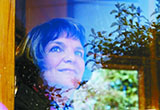 While noodling around on Linked In one day, I was pleased to notice that the professional networking site has some member groups discussing patient engagement.
While noodling around on Linked In one day, I was pleased to notice that the professional networking site has some member groups discussing patient engagement.
I’m a heart attack survivor, a blogger, and a women’s health activist—so I also consider myself a fairly engaged patient. Maybe I should drop in on one of these groups and see what other engaged patients are up to? Most likely contemplating issues like doctor-patient communication, improved health outcomes, and informed decision making, no doubt.
But it was only then that I realized this: these groups don’t have any patients in them.
What they do have are people who work in healthcare, talking about patients, and discussing the experience of being a patient, and speaking for patients—all without bothering to include any real live patients.
Many physicians defend this exclusionary practice by insisting that, after all, “we are all patients” anyway, at some point in our lives.
That insistence immediately tells us something important about the makers of such a statement, namely: they’re not patients.
You may have, like most people, sought diagnosis or treatment for an acute care health issue. You may have spent time in a hospital bed recuperating from such an event. You may have suffered a broken bone, an allergic reaction, a skin burn, appendicitis, or a bad cut that needed stitching up.
None of those examples of acute care medicine means that you are a patient, and here’s why.
I like to define acute care in this way: you get sick, you get treated, you get better—and then you thank your brilliant doctor.
But it’s only when you’re diagnosed with chronic illness—and especially if you’re living with more than one chronic illness diagnosis—that, despite the claims of those “we are all patients” folks, you learn what actually being a patient is all about.
In fact, many people living with chronic illness feel terrible. Every. Single. Day. And while those receiving acute care can expect that feeling temporarily terrible will gradually diminish, in chronic care we often live with the chilling reality that it feels terrible now, and it’s likely to get even worse over time.
I’m no longer surprised now when I read physicians’ shocked accounts of learning firsthand what it feels like to become a real live patient. No matter how many years of clinical experience working with, caring for, and listening to their patients they may have, physicians and other healthcare professionals inevitably report a “Eureka!” moment when facing their own health crises. They announce to their colleagues, for example, that hospitals are demoralizing, medical procedures frightening, lack of dignity embarrassing, symptoms distressing, dependence humiliating, the simplest of tasks exhausting, anxiety relentless, their past as a healthy person but a dim memory, and a future that seems bleak and uncertain. Who knew?
Welcome to our world, doctors. And until you experience that “Eureka!” moment yourself, please stop saying: “we are all patients.”
Because you’re not.
Competing interests: I declare that that I have read and understood the BMJ Group policy on declarations of interest and I have no relevant interests to declare—except that I am a real live patient.
Carolyn Thomas is a heart attack survivor, women’s health activist, and blogger at Heart Sisters.